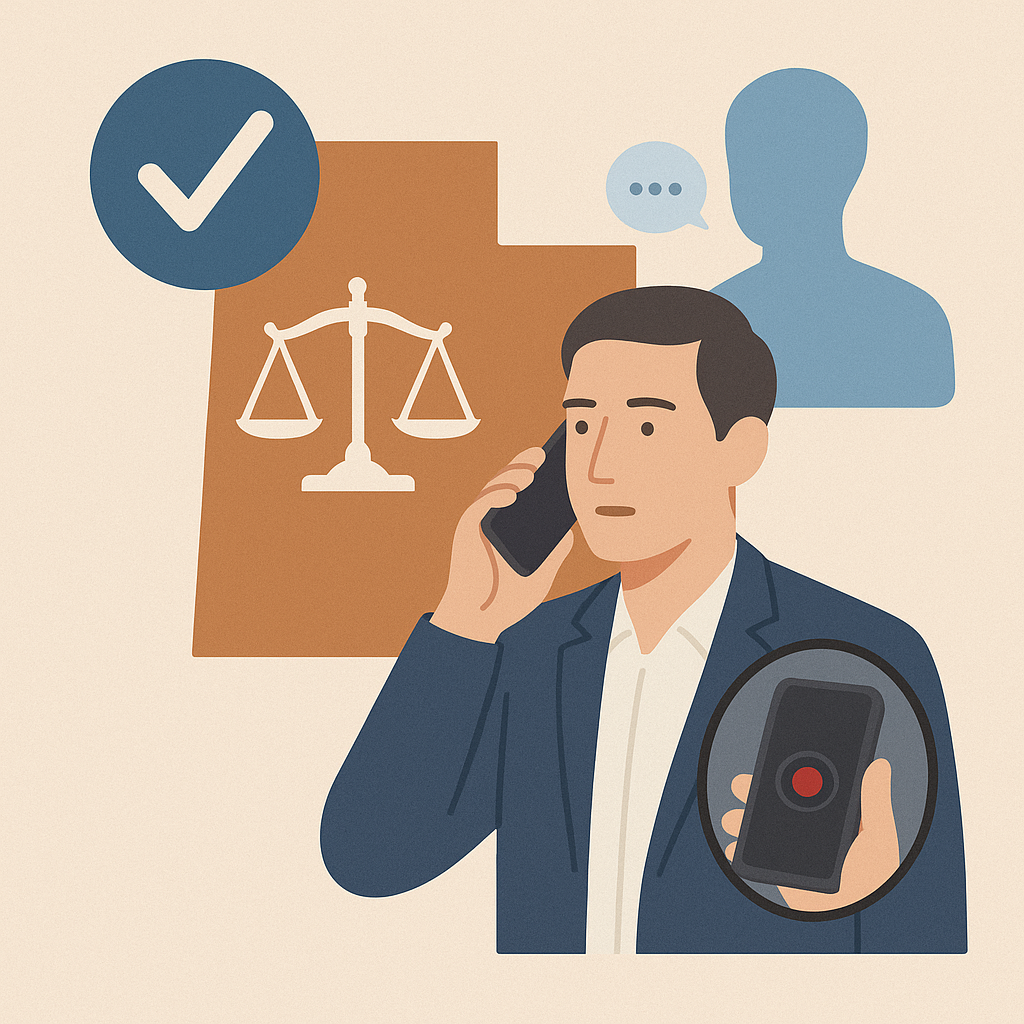Can I Record Phone Calls or Meetings in Utah? Consent Rules, Privacy & Best Practices
Plain-English guide to one-party consent, privacy limits, workplaces/schools, storage, and admissibility
Utah Law Explained helps you use recordings the right way. Utah is a one-party consent state, which means a conversation can be recorded if at least one person in the conversation (including you) knows about it. But that doesn’t mean you can record anyone, anywhere.
This page breaks down Utah’s consent rule, where recordings cross the line, and practical do’s and don’ts so your files stay legal, ethical, and useful if you ever need them.
Consent Basics (Utah Code § 77-23a-4)
Utah generally mirrors the federal one-party consent standard. If you are part of the conversation, your consent is enough to record it.
One-Party Consent
If you’re a participant, you can record without telling others. This applies to in-person talks, phone calls, Zoom/Teams, and most electronic communications.
Not Covered
You can’t secretly bug a room, car, or device when you’re not present. You need consent from at least one participant.
Federal Context
Federal wiretap law allows one-party consent, but stricter state rules control locally. Utah aligns with the federal minimum.
Privacy Expectation
“Private” spaces carry extra limits. Even lawful consent can fail if the setting defeats a person’s reasonable expectation of privacy.
When Recording Becomes Illegal
Off-Limits Situations
Workplaces & Schools
Storage, Sharing, and Court Use
Once a recording is made legally, how you store and share it matters.
When in doubt, get permission from the other person, keep your recording private, and seek legal advice before using or sharing it.
Practical Tips & Checklist
Confirm Participation
Are you part of the conversation? If not, you need consent from someone who is.
Check the Setting
Avoid private areas or places where people expect privacy; follow posted policies.
Mind Policies & Confidentiality
Review workplace or school rules and any confidentiality duties before recording.
Store Securely
Use protected storage and clearly label files with date, participants, and context.
Share Carefully
Avoid public posting. If unsure about use, get permission or legal advice first.
Video & Social Learning Hub
Key Takeaways
Utah uses one-party consent: if you’re in the conversation, you can record it.
Illegal recordings include non-participant bugging, private-area recordings, and recordings made with bad intent.
Follow policies, store files securely, avoid public posting, and seek legal guidance when unsure.
This page is legal information, not legal advice. When in doubt, get counsel before you record or share.
Need Help Applying This to Your Situation?
If you’re facing a tense call or workplace issue, a short consult can help you avoid legal and policy pitfalls before you press record.
Talk to a Utah AttorneyDiscuss consent, privacy expectations, policy limits, and how to handle storage and sharing so your recording remains usable.
